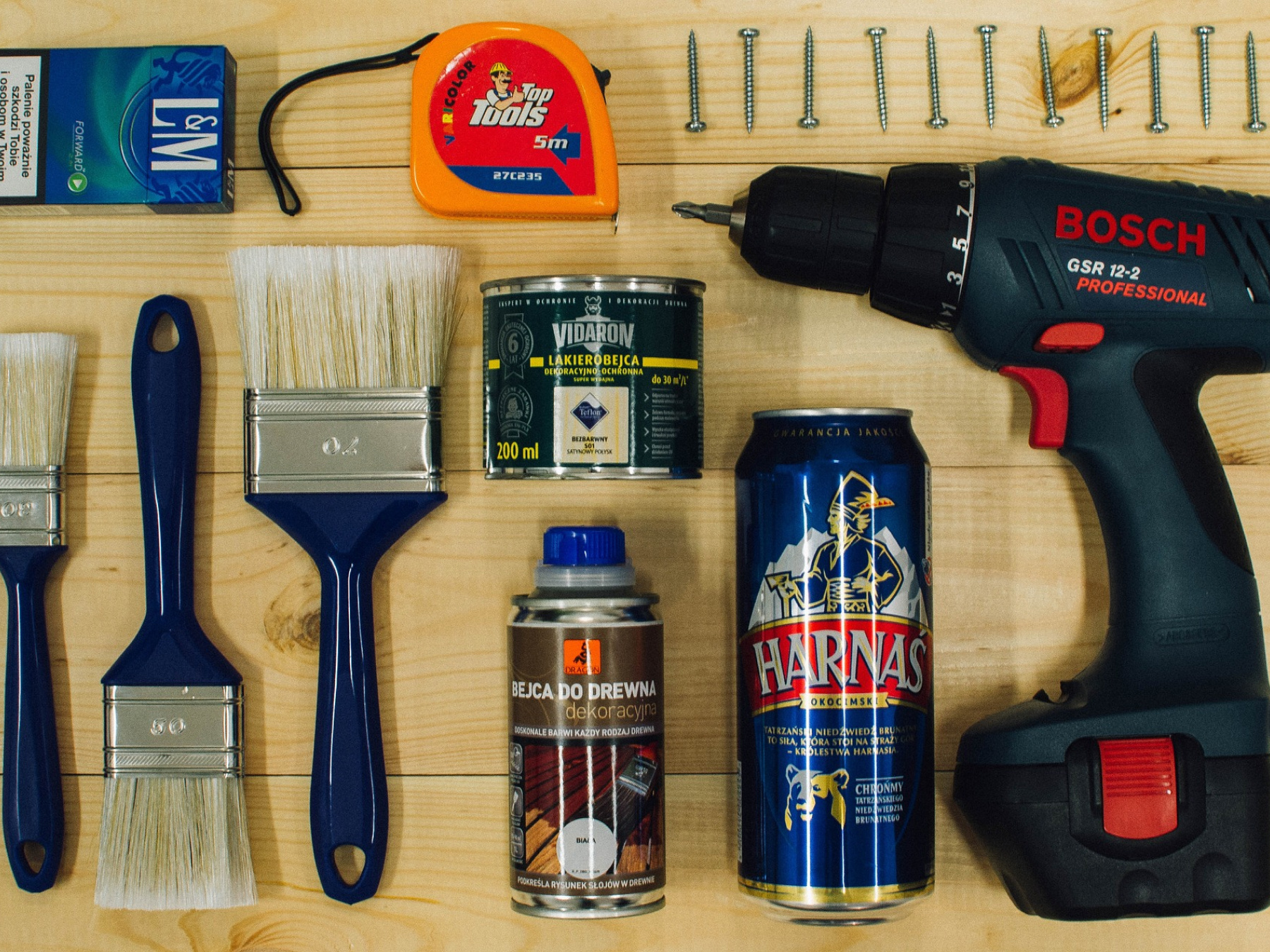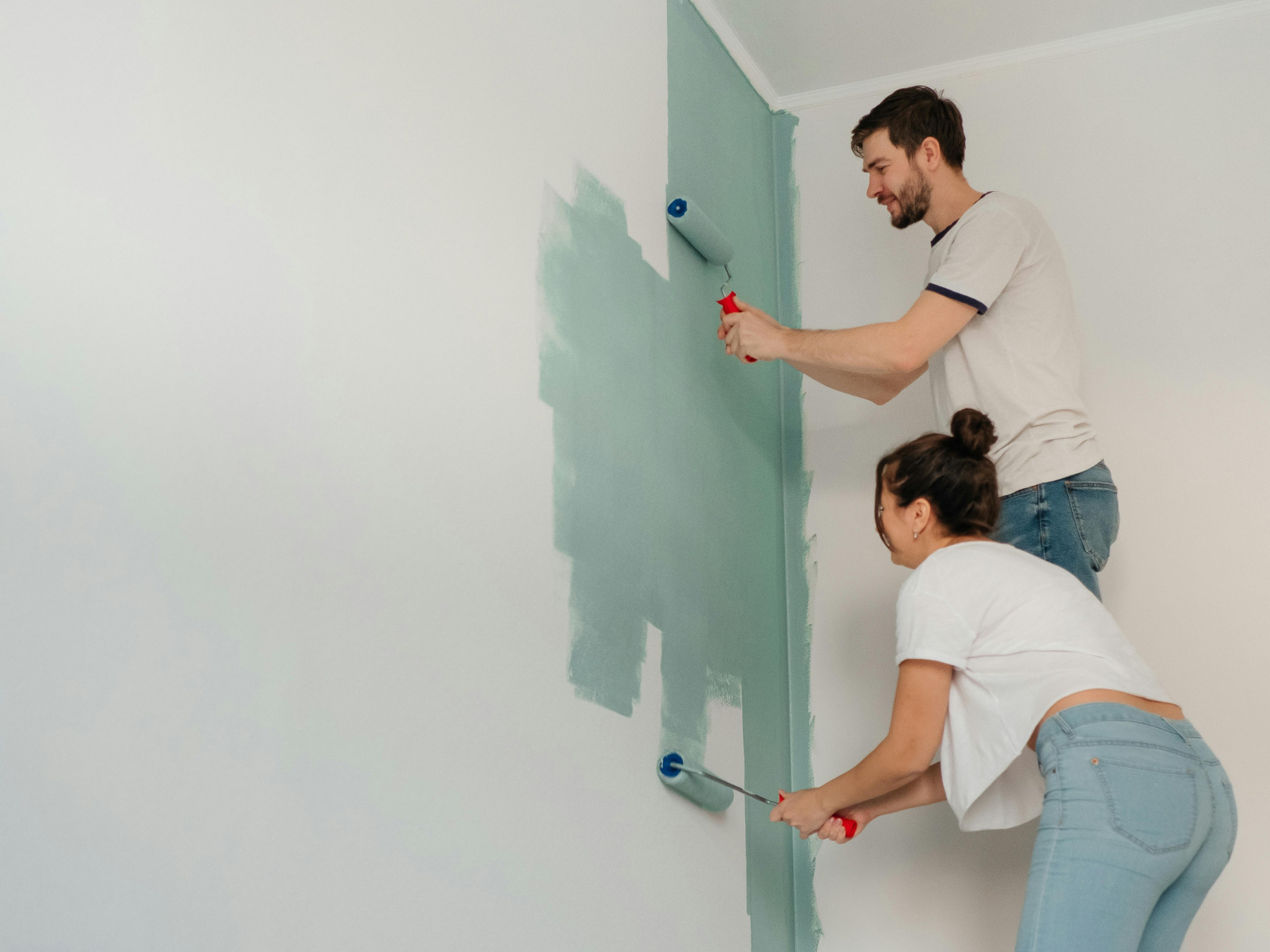Every homeowner has faced the dilemma at some point - should I attempt this project or repair myself or is it wiser to hire a professional? The lure of saving money by doing it oneself is strong, but taking the DIY route also carries potential risks and downsides that shouldn't be ignored.
With many home projects, it ultimately comes down to your skill level, tools and experience and whilst some DIY mistakes are quick and easy to fix, others could be very costly and could even cause bigger problems down the line.
To help homeowners make smart decisions about DIYing vs. hiring out, below are some of the most common household projects based on difficulty and stakes involved. Remember, what may be a simple task for seasoned DIYers could be a major ordeal for novices so it’s important to know your limits.

Beginner-Friendly DIY Projects:
The gateway to home DIY often starts with basic tasks that are relatively low risk with minimal tools required. Starting small builds skills and confidence:
- Painting (Interior): Painting rooms, trim and cabinets is a common first foray for most DIYers. It's inexpensive, simple and easily redone if mistakes happen. Just remember to take proper preparation seriously.
- Minor Plumbing: Basics like unclogging drains, repairing small leaks or replacing toilet components, taps and showerheads are fair game for most. Having the right tools is key.
- Tiling: Smaller tiling projects like bathroom floors or kitchen backsplashes make for a good early tile job if you're willing to be meticulous. Large floor installations are harder.
- Landscaping: Basic landscape and gardening work like planting flowers, laying mulch, mowing and weeding can be rewarding DIY.
- Drywall Repairs: Patching small drywall holes or covering seams isn't overly complex for beginners with some guidance.
The Grey Area for Intermediate DIYers:
For homeowners with solid DIY skills and the required tools, there's a wide range of projects that could go either way when it comes to hiring out or doing it yourself:
- Kitchen Remodelling: For simple layout tweaks or refinishing cabinets and cosmetic updates, reasonably handy DIYers can potentially save major money tackling these kitchen projects themselves. Major expansions or reconfigurations may still require pros.
- Bathroom Remodelling: Bathroom remodels can make viable DIY projects if the new layout stays close to original and you're comfortable with tiling, plumbing fixtures, ventilation and waterproofing. Major expansions are considerably tougher.
- Deck Building: Decks seem simple but getting footings, framing, railings, stairs and waterproofing properly done takes know-how. Ground-level decks can be DIYed more easily, but multi-levelled decks are best left to pros.
- Replacing Windows: With specialised tools and some homework, window swaps can potentially be DIY on simpler jobs. Bay or bow windows get far trickier without professional installers.

Leave These to the Pros:
On the other end of the spectrum, certain home projects are best left to licensed, experienced professionals to ensure safety, proper permitting and workmanship:
- Major Structural Work: Removing or building load-bearing walls, modifying foundations, raising rooflines – these require structural engineering expertise.
- Room Additions: Even small home additions are a huge undertaking requiring architectural plans, permitting, framing skill and more. They impact electrical and plumbing as well.
- Electrical Rewiring: While swapping light fixtures or outlets is (somewhat) manageable for amateurs, anything involving new circuit installation or rewiring should involve a licensed electrician to avoid safety risks.
- Significant Plumbing Work: Major plumbing overhauls like re-piping or installing new drain lines, sewer lines, water mains and vents demand a licensed, insured professional plumber.
- New Roof: Few- if any - homeowners should consider re-roofing their house solo. Professionals ensure proper installation, waterproofing and manufacturer warranties.
The Smart Way to Approach DIY Home Projects
If you do choose to tackle more major renovations or repairs yourself, there are some crucial best practices to follow:
Get Proper Permits: Don't skirt local construction and renovation permitting processes. Having inspectors ensures work is done safely to code and that you won’t be ordered to cease and desist.
Focus on Proper Prep: With any hands-on project, tedious preparation like protecting areas, gathering tools and assembling materials should never be rushed.
Follow Manufacturer Guides: For installations like windows, cabinets, flooring and more - read manufacturer instructions cover-to-cover first and adhere precisely.
DIY Safely: Invest in all required personal protective equipment like harnesses, respirators, eye protection and gloves. Never DIY anything that compromises your safety.
Research and Ask Questions: If you ever feel that you’re in over your head, pause to do more research or ask professionals for guidance rather than soldiering on. Costly fixes await preventable mistakes.
At the end of the day, the pride and cost-savings of DIYing home projects can be immensely rewarding when you know your limits. Identify projects within your skill level and go for it!
For major jobs that feel overwhelming or risky, don't hesitate to hire professional contractors and trades to get flawless results. Your home is likely your biggest investment - never sacrifice quality or safety for the sake of DIY.


Comments